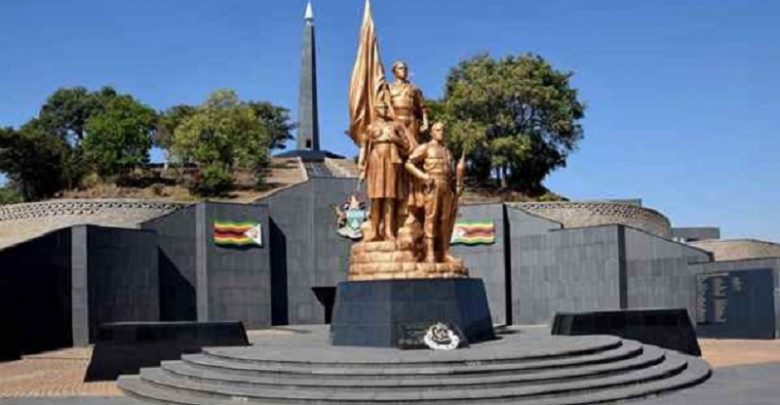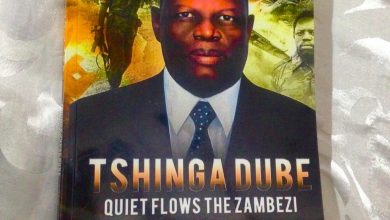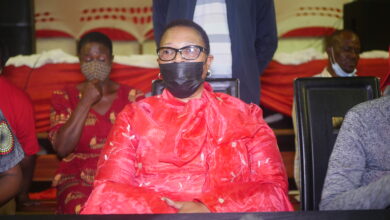Relevance of Heroes Acre brought into question

The relevance of the National Heroes Acre has come under the spotlight following the recent failure by the government to convince the family of the late former president Robert Mugabe, to have his remains interred at the special cemetery.
Despite having founded the heroes’ acre and presided over burials of many national heroes since independence in 1980, Mugabe was instead buried at his rural home in Zvimba last month.
The former president who died a bitter man after being dethroned in a coup in November 2017 is reportedly having told his family that he did not want to be buried at the shrine.
The Mugabe family had initially acceded to the government’s request to have a mausoleum built for Zimbabwe’s former strongman at the heroes’ acre but later made a u-turn, leaving many questions on the significance of the special graveyard.
“From my point of view the National Heroes Acre has never been relevant especially for a person like me who was born and bred in Matabeleland,” said Linda Mpofu, a social commentator based in Gwanda.
“If all things were equal in this country, its relevance would be more pronounced but from time immemorial the acre has been used to divide people especially demeaning the efforts of ZIPRA forces.”
Mpofu said with national heroes such as the late ZAPU president, Dumiso Dabengwa, and former president Mugabe himself having refused to be buried at the National Heroes Acre it would not be easy any more for families to accept that their loved ones who would be declared national heroes to be buried there.
Mpofu added the family of the late Father Zimbabwe, Joshua Mqabuko Nyongolo Nkomo, was justified in considering exhuming his remains in Harare for reburial at their rural Matabeleland South home.
“Nkomo belongs to his family first before the citizens of Zimbabwe,” said Mpofu.
“So there is nothing wrong with them wanting to exhume his body.”
Political analyst, Thomas Sithole, said the national heroes’ acre lost its relevance a long time ago when it became a ZANU-PF cemetery.
“What has happened now is that the former president, who presided over who from ZANU-PF deserves to be buried there, has himself refused to go there,” said Sithole.
“This has dealt the party a fatal blow since the man who was the brains behind the project has himself refused to be interred there.”
He said it was high time the ZANU-PF Politburo stopped determining who has to be buried at the cemetery.
“Sadly, what started as a National Heroes Acre became a political party shrine and lost its significance and relevance over the years,” bemoaned Sithole.
“Some leaders whose remains were interred there had their wishes disrespected and disregarded, including the former father Zimbabwe, if my memory saves me right. If their loved ones decide to exhume their remains, it will be as a result of lack of significance and relevance of the place as confirmed by the recent snub of the place by the former president and his family.”
Effie Ncube, a political analyst, another political analyst said the National Heroes Acre was never a national institution.
“We are making a big deal out of nothing really,” he argued.
“The Heroes Acre was always a ZANU- PF project. In fact, it was Mugabe’s personal project. To say we have just discovered that it is not a national project is being dishonest.”
Ncube said the only way to protect national institutions lied in the removal of partisan politics from them.
“Mugabe personalised everything. It was his Parliament, his Cabinet, his Courts, his ZEC, his Heroes Acre, his; this or that,” he contended.
“Institutions must be bigger than individuals and must endure beyond their death. Mugabe is dead, let’s move on. The big task is to build strong and durable institutions based on democratic governance and the rule of law.”
MDC national spokesperson, Daniel Molokele, told CITE their concern had always been the way heroes have been declared.
“I think for us as the MDC the major concern is how these heroes are selected,” said Molokele. “For us there has to be a change, a major change beyond the ZANU-PF political leadership, the Politburo. It has to be something that is broad-based and national. We need to open up the debate for everyone in society, all the stakeholders, captains of industry, business, labour, students, youth, women and political parties to say, ‘what is our concept around this.”
He added: “So the death of Mugabe has given us an opportunity to discuss this concept of heroism, what makes the national heroes in Zimbabwe beyond the political process of ZANU-PF.
But Sipho Nyoni, a political commentator, said he was of the view that the National Heroes Acre was still relevant.
“The National Heroes Acre is indeed still relevant in my view,” he opinionated.
“There is no nation or people without individuals who achieve extraordinary feats for their country or personally, and as such the existence of the heroes’ acre is important and indeed I feel it is still relevant even today.”
He however called for the abolition of ZANU-PF determining who should be declared a hero, arguing the concept of heroism should be broad to encompass sports persons, musicians, artists and businessman, who are not necessarily politicians.
He said a place such as the heroes’ acre was necessary in the documentation of the country’s history.
“Unfortunately, because of Mugabe’s hypocrisy, many relatives will indeed decline for their loved ones to be buried there,” said Nyoni.
“Mugabe forced many people who did not want a heroes’ acre burial to be buried there, knowing fully-well how warped the system of merit for their heroes’ acre burial was.”
Nyoni said the fact that Mugabe was not buried at the heroes’ acre despite being the founder of it “smacks of hypocrisy and arrogance of the highest order,” considering he forced others to be buried there.






